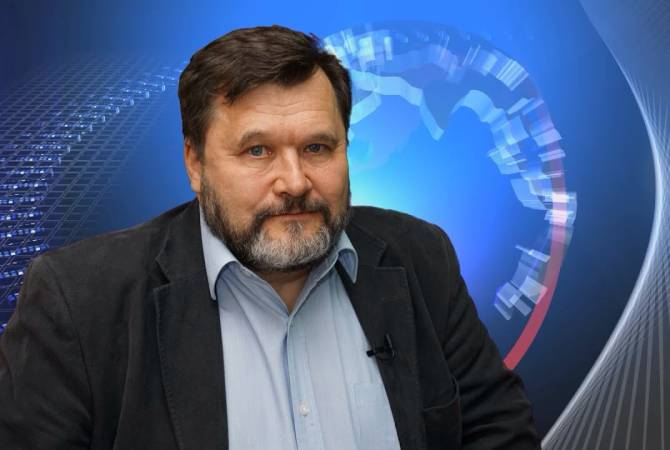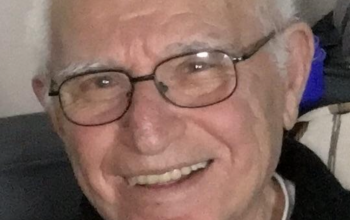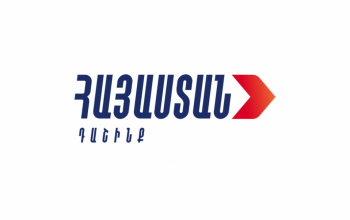YEREVAN, MARCH 21, ARMENPRESS. March 21 marks the 100th day since Azerbaijan began its illegal blockade of Nagorno Karabakh by closing the Lachin Corridor. Azerbaijan has so far ignored calls and demands from the international community, as well as the World Court’s order to open the Lachin Corridor – the only road connecting Artsakh (Nagorno Karabakh) with Armenia and the rest of the world. Furthermore, Azerbaijan continues its aggressive policy and escalates the situation along the border with Armenia and around Nagorno Karabakh.
The United Nations’ highest court – the International Court of Justice – ordered Azerbaijan on February 22 to “take all steps at its disposal” to ensure unimpeded movement of persons, vehicles and cargo along the Lachin Corridor in both directions.
ARMENPRESS spoke to Dr. Alexander Krylov, the Chief Research Fellow at the Institute of World Economy and International Relations of the Russian Academy of Sciences (IMEMO).
Krylov said that although the international community is “morally condemning” the closure of the Lachin Corridor, it is still unclear what kind of mechanisms could be used for opening it.
He said that the Russian peacekeepers deployed in Nagorno Karabakh don’t have a policing mandate, which has led to a complicated situation affecting the peaceful population.
Krylov projected that a “stable tense” situation will persist and it could periodically escalate not only in Nagorno Karabakh but also along the international border with Armenia, but it won’t lead to an all-out war.
The analyst said that Azerbaijan is successfully applying the salami tactics.
ARMENPRESS: Mr. Krylov, it has now been 100 days since Azerbaijan started the blockade of Lachin Corridor, which has led to a humanitarian crisis in Nagorno Karabakh. Azerbaijan is ignoring demands by the international community, as well as the International Court of Justice order on opening the corridor, and moreover it continues its aggressive policy. How would you comment on this? What should the international community do in order for the Lachin Corridor to be opened?
Krylov: It is clear that a moral condemnation by the international community is taking place, but it is unclear what the mechanism for unblocking the Lachin Corridor could look like, because the Western colleagues are limited to condemning. Russia maintains a peacekeeping contingent in the conflict zone, however the contingent’s mandate doesn’t provide for policing functions. And here the Azerbaijani leadership is not using its military, but rather the possibility of implementing actions through its staged civil activists. Everyone understands that the civilian activists are staged, but the Russian peacekeepers don’t have a policing mandate, a mandate to disperse demonstrations, protests and so on. On the other hand, according to the mandate of the Russian peacekeepers, their function is to separate the conflicting parties, but under the trilateral statement Azerbaijan has to provide security of Lachin Corridor and ensure transport activities. Initially this was all written vaguely, but if we recall 9th of November [2020], when in conditions of military operations it was necessary to quickly achieve and end to hostilities, it is understandable that there was no time for developing it at that time. That’s why the Armenian side, naturally, has discontent with the Russian contingent, which is basically controlling the Lachin Corridor, but controlling means not allowing the resumption of hostilities, but at the same time it can’t obstruct the staged civilian actions.
But at the same time Azerbaijan has discontent as well, because the trilateral statement envisages the withdrawal of Armenian Armed Forces from the territory of Nagorno Karabakh, but the Defense Army of Nagorno Karabakh continues to exist. And Azerbaijan announces that the Russian peacekeepers ought to either disarm or expel them, move to Armenia. But here the issue is again that Russian peacekeepers don’t have policing functions. Thus, this is a very complicated situation, and the peaceful population gets mostly affected by this, and they are now in a very difficult condition.
ARMENPRESS. Armenian Prime Minister Nikol Pashinyan said on March 16 that Armenia hopes the Russian peacekeepers will fully implement their functions in Nagorno Karabakh, but if they are unable to do so then Moscow ought to apply to the UN Security Council and warn about the threat of mass killings facing the civilian population in Nagorno Karabakh. Do you think Russia should ask the UNSC to intervene?
Krylov: Imagine if the Russian leadership were to express itself in the same spirit like the Armenian leadership. It is a bit strange here. In any case, perhaps we should think more about what the Armenian leadership can do.
The Armenian leadership has been recently saying that it is not interfering in the internal issues of Karabakh because that’s not its business. And thus, the Karabakh topic isn’t being raised during the talks for normalization of relations with Azerbaijan. There was a different stance in the past following the war. Nonetheless the Armenian leadership was saying that the peace treaty must include a clause about the status of Nagorno Karabakh. The capture of bordering regions, important strategic heights, the blockade of Nagorno Karabakh and maintaining border tensions are all part of Azerbaijan’s intentional policy, and the new administrative division of Karabakh became a very interesting manifestation of this. As Aliyev announced, the name Nagorno Karabakh shouldn’t be used, it no longer exists, while the border is drawn as Azerbaijan declares the ‘Karabakh economic region’. There’s no Aghdam region, but two regions are added in the country with Azerbaijani population. Understandably now everything will be done to break up the economic ties between Nagorno Karabakh and Armenia. And that’s what’s being done.
The Armenian leadership’s task is to maximally internationalize the issue, involve new actors here, activate the old actors – the US and the EU. And here we see that the collective West has basically presented numerous peacekeeping initiatives but they didn’t lead to any result. For example, the latest trip of Rasmussen. He is the former NATO Secretary General. He came, looked, and then what? Nothing. This is a demonstrative action without a real content. Actually, from the very beginning of the Karabakh conflict the Western policy has been aimed at limiting Russia’s influence in South Caucasus and pushing it out from the South Caucasus, rather than resolving the conflict and taking into account the interests of the parties. And now we see that the Western policy is pursuing the same goals, because if a peaceful resolution has been achieved based on the trilateral statement, then Russia stays in the South Caucasus, something our Western colleagues strongly dislike, therefore they are doing everything to derail the peace process. We see that that’s why an escalation is taking place.
ARMENPRESS: What kind of a solution to the Nagorno Karabakh conflict do you see?
Krylov: There are two ways – a military solution and a peaceful solution, basically like it’s been from the beginning. Now, if the parties are unable to agree they resolve the issue on the battlefield or find some kind of a peaceful resolution. There’s a third way, that the foreign actors impose their will and dictate their will upon the conflicting parties. Now it is difficult to imagine someone – be it Russia or the collective West – dictating terms to Azerbaijan which has won the war, and Turkey, because they are actually acting as a united front. And I don’t imagine the development of events in that way. Therefore, we can expect the stable tensions to continue with trends of further escalation not only in Karabakh but also along the borders of Armenia.
ARMENPRESS: Now there are already reports on Azerbaijan amassing troops. Is there a likelihood of an all-out war?
Krylov: An all-out war is less likely to happen because if it were to take place in Karabakh like in 2020 it would inadvertently be a clash with Russian peacekeepers and subsequently a war with Russia, thus we can expect that this entire tension will continue within the framework of orchestrated border clashes, which Azerbaijan is fulfilling very successfully. This is called the salami slicing tactics. They are successful in doing it, while Armenia can still respond with effective countermeasures against this strategy, but this requires the relevant armed forces. And if we analyze Prime Minister Pashinyan’s latest statement, we see that he doesn’t view the military readiness level of Armenia to be high for withstanding such provocations. He said that a ‘fifth column’ within the Armenian army contributed to the loss in the second Karabakh war, and that fifth column is likely still functioning judging by the continuing arrests of servicemen. Therefore, the situation is extremely unfavorable and requires great attention.
ARMENPRESS: What actions should Russia take? Are Russia’s actions effective enough for establishing peace in the South Caucasus?
Krylov: Russia’s potential possibilities shouldn’t be overestimated. I mean the Russian diplomacy is doing everything possible through peaceful means. Unfortunately, in this situation, in the Ukrainian context and on the backdrop of the conflict with the collective West it is extremely difficult for Russia, and it is highly important for Russia not to add new fronts, including in South Caucasus. Thus, it is clear that Moscow is acting very carefully, and perhaps it would’ve been less constrained and would’ve displayed more decisiveness in some other conditions, but now the main task is to avoid a second front in the Caucasus. So, the Russian diplomacy is doing everything it can. It can negotiate and convince personally Recep Tayyip Erdogan or Ilham Aliyev. But as you see, thus far such methods failed to lead to the unblocking of Lachin Corridor. We hope that nonetheless pressure will be applied not only from Moscow but also Western countries. The Armenian diplomacy must be more active here in order for Armenia’s Western allies who announce that they care for the Armenian nation and Armenian statehood to display more determination in pressuring Baku and Ankara. But you see that now the Azerbaijani energy resources are highly important for the EU, everyone has their limitations, their interests in the international arena, therefore in this sense Armenia is now in a very difficult state.




